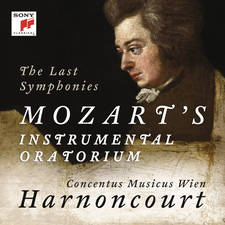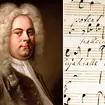Handel's Last Years: His Best Works?
George Frideric Handel's last years were traumatic - illness, accidents and amazing music all combined - but were his late works his best?
Handel's life was not short of incident, but his remarkable run of pieces towards the end of his time is among the most impressive of his career. It's even more remarkable that he managed to compose anything after he suffered a debilitating stroke in 1737, which he managed to bounce back from. And then there was the carriage accident in 1750 that left him seriously injured. Oh, and the cataracts and subsequent blindness that followed in 1751.
In short, it's incredible that he made it to the grand old age of 74 before he died in 1759, but frankly astonishing that the quality of his work was still so high.
Messiah
Composed in 1741, after his stroke and at the age of 56, Handel's Messiah is possibly his most famous work. Not only that, it was reportedly composed in only 24 days in a period of frenzied activity. At the Messiah's London premiere, King George II stood up as soon as the Hallelujah chorus kicked off, which then became something of a fad at subsequent performances.
Music For The Royal Fireworks
A banger in every sense, Handel's Music For The Royal Fireworks is among the most vibrant pieces in his whole oeuvre. Given how epic, grand and downright exciting the music is, it's no surprise that 12,000 people attended its premiere performance, filling London's Green Park on April 27th, 1749.
Jephtha
Though his remarkable struggles against his ailments didn't seem to dim the quality of his musical output, Jephtha sees Handel finally reaching the end of his tether, health-wise. It is, unsurprisingly, his last oratorio, but he didn't hide the fact that he was really suffering. Handel wrote at the end of the original score: "Reached here on 13 February 1751, unable to go on owing to weakening of the sight of my left eye."
With this knowledge, Jephtha takes on a whole new significance. The bible-inspired story of the libretto is dark and dramatic, and Handel's score (possibly letting some of his frustrations in) matches the moody tone in a surprisingly effective way for the period. Try the gorgeous aria below to see what we mean:












